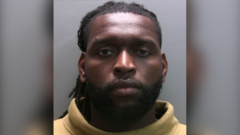The repatriation highlights changing diplomatic relations and the complexities of transnational justice.
Five Members of Bali Nine Drug Ring Return to Australia After Two Decades in Indonesian Prison

Five Members of Bali Nine Drug Ring Return to Australia After Two Decades in Indonesian Prison
After nearly two decades of incarceration, the last five members of the notorious Bali Nine drug smuggling group have returned to Australia, a resolution to a diplomatic saga that gripped both nations.
The last five members of the infamous Bali Nine drug smuggling ring have returned to Australia after being incarcerated in Indonesia for nearly two decades. Their release marks the conclusion of a long and controversial saga that began in 2005 when these young Australians attempted to board a flight from Bali, a favored tourist destination, with heroin concealed on their bodies. This case not only stirred public sentiment in Australia but also became a diplomatic headache between the two nations.
Matthew Norman, Scott Rush, Martin Stephens, Si Yi Chen, and Michael Czugaj touched down in Australia on Sunday, as confirmed by officials from both countries. Their return comes in the wake of a complex legal history, in which two of their co-defendants, identified as ringleaders, were executed by firing squad in 2015, another succumbed to cancer in prison in 2018, and one was released early due to good behavior in the same year.
Australian Prime Minister Anthony Albanese characterized the five men's return as a “gesture of compassion” from Indonesia's newly elected president, Prabowo Subianto. Prabowo, a former general with a controversial history regarding human rights, is seeking to reshape his image as an adept diplomat. Yusril Ihza Mahendra, the Indonesian minister responsible for law and prison affairs, clarified that the men were not pardoned but were transferred to Australia on the basis of reciprocity, emphasizing that Australia would also provide similar considerations going forward.
In a formal statement, Albanese expressed hope that the men would now be able to pursue their personal rehabilitation and reintegration within Australia. Although few details were disclosed regarding their landing, reports suggest that the absence of a prisoner transfer agreement between the two countries means the men retain their freedom to live without restriction in Australia.
Matthew Norman, Scott Rush, Martin Stephens, Si Yi Chen, and Michael Czugaj touched down in Australia on Sunday, as confirmed by officials from both countries. Their return comes in the wake of a complex legal history, in which two of their co-defendants, identified as ringleaders, were executed by firing squad in 2015, another succumbed to cancer in prison in 2018, and one was released early due to good behavior in the same year.
Australian Prime Minister Anthony Albanese characterized the five men's return as a “gesture of compassion” from Indonesia's newly elected president, Prabowo Subianto. Prabowo, a former general with a controversial history regarding human rights, is seeking to reshape his image as an adept diplomat. Yusril Ihza Mahendra, the Indonesian minister responsible for law and prison affairs, clarified that the men were not pardoned but were transferred to Australia on the basis of reciprocity, emphasizing that Australia would also provide similar considerations going forward.
In a formal statement, Albanese expressed hope that the men would now be able to pursue their personal rehabilitation and reintegration within Australia. Although few details were disclosed regarding their landing, reports suggest that the absence of a prisoner transfer agreement between the two countries means the men retain their freedom to live without restriction in Australia.




















